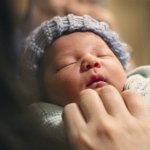Atypical antipsychotic medications are commonly used for the treatment of schizophrenia and bipolar disorder. Despite the increasing use of these medications in women of child-bearing age, there is still relatively little data addressing the reproductive safety of these medications.
Newham and colleagues studied a group of infants with in utero exposure to atypical antipsychotic medications (n=45) and compared outcomes in these exposed infants to outcomes in infants exposed to typical antipsychotic medications (n=25) and in a reference control group of infants with no antipsychotic exposure (n=38). The control group consisted of infants exposed to medications that were considered to be non-teratogens and were not associated with fetal or adult weight change, such as antihistamines, antibiotics, and laxatives.
Researchers in this study used information from the National Teratology Information Service (NTIS) in the United Kingdom, which is used by medical professionals regarding the use of medications, drugs, and chemicals in pregnancy. Data was collected from January 1995 and July 2006 regarding questions regarding antipsychotic exposures during pregnancy prior to delivery.
After the estimated delivery date, information was collected regarding gestational age and birth weight of full term; post-date babies were not included in the study. Infants with congenital malformations or pregnancies with maternal diabetes were not included, as were cases with missing essential data, such as gestational age, birth weight, or gender. Cases with exposure to more than one medication were allowed, but cases with exposure to both typical and atypical antipsychotic medications were excluded.
In this study, the babies exposed to atypical antipsychotic medications were at higher risk more likely to be large for gestational age when compared to the babies exposed to typical antipsychotic medications and the control group. This group was also had a higher mean birth weight when compared to babies exposed to typical antipsychotic medications. Babies exposed to typical antipsychotic medications during pregnancy had a significantly lower mean birth weight and were more likely to be small for gestation age compared to the control group.
While this study was relatively small, this study is extremely important in highlighting potential medical issues associated with use of antipsychotic medications in pregnancy. In adults, it has been demonstrated that atypical antipsychotic medications have been associated with weight gain and increased risk of diabetes. The present study did not address the risk of gestational diabetes among women taking antipsychotic agents; however, the study indicated that infants exposed to atypical agents are more likely to have increased weight gain, when compared to infants with exposure to typical antipsychotic or non-antipsychotic medications.
Because the data available regarding the use of atypical antipsychotic medications in pregnancy is sparse, there is a great need to study these medications and their use in pregnancy. The National Pregnancy Registry for Atypical Antipsychotics is currently enrolling pregnant patients on atypical antipsychotic medications to learn more about safety concerns regarding these medications and pregnancy. Interested patients and clinicians may contact the registry by phone at 1-866-961-2388 or by email at registry@womensmentalhealth.org for more information.
Betty Wang, MD
Newham JJ, Thomas SH, MacRitchie K, McElhatton PR, McAllister-Williams RH. Birth weight of infants after maternal exposure to typical and atypical antipsychotics: prospective comparison study. Br J Psychiatry 2008;192(5):333-7.








Leave A Comment